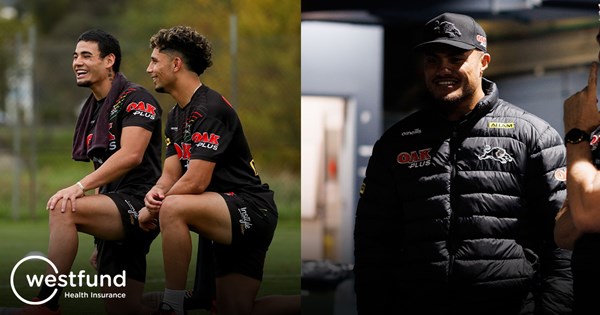It's behind a paywall. Can someone print it out......
Thanks.
Domestic violence allegations are not a ‘soap opera’, Mr Kent
Chief Reporter
Back in 2010, rugby league commentator Paul Kent penned a strident column about an actor who attacked his girlfriend, and was then rushed to rehab. “Beating up a woman is not the action of an addict,” he wrote. “It is a sign of poor character. The action of a weak man. A dog.”
Kent was right to condemn domestic violence in strong terms, underlining the seriousness of a crime that was once dismissed as a behind-closed-doors, “personal” issue but is now, finally, treated with the gravity it deserves (in that column, Kent’s message was undermined by his solution, which was to say the actor needed a “smack in the mouth”).
But that’s typical of the man widely known as “Kenty”; a journalist-turned-commentator who has built a career on judging players’ performances and failings in sport and life, and drawing emphatic conclusions, such as “we live in a world of snowflakes”, or “rewarding losers is a weakness on society”.
Until last weekend, when he was stood down to deal with what was described on air as a “personal matter”, Kent could be seen delivering his uncompromising opinions twice a week in
The Daily Telegraph, and three times a week on one of Fox Sport’s flagship shows,
NRL 360, on which he acted at times as a contrarian, at times as a pantomime villain and at times as a moral arbiter.
Yet on Wednesday, when Kent himself faced court on charges of assaulting and choking his 33-year-old ex-girlfriend (they’d broken up the night before), his position on the seriousness of domestic violence was less strident.
Kent said he would fight the charges. Outside the court, he said he was embarrassed, looked forward to the full story coming out and had the support of his employers. “I don’t think [my career] is over.”
But when asked whether he stood by his previous anti-domestic violence views – an invitation to reiterate his strong stance on the issue itself, even while stating his innocence in this particular case – Kent took a different approach.
“It’s the rugby league soap opera, that’s the way it rolls,” he said. “So it’s my day being the storyline right now. That’s fine, people are entitled to their opinions. We’ll get to the end of it. It’ll be OK.”
Rugby league does have its fair share of theatre. “Soap opera,” an AFL chief once informed the
Herald’s veteran sports writer Roy Masters, “is about the only thing rugby league does better than us.” But soap opera is melodrama; it’s coach feuds and pay fights and salary cap scandals and rainbow jersey debacles.
Domestic violence allegations fall into an entirely different category. Domestic violence is a pervasive scourge in the community; more than 33,000 incidents were recorded across the state last year, and that number has grown. On average, 60 per cent of police time in each command is devoted to helping victims and dealing with offenders.
The laundry list of players who’d been on the receiving end of Kent’s sharp tongue have lined up against him. One said a journalist who “never shone away” from questioning players’ morals if they messed up “needs to be held account for his, also”.
Another, commenting on
The Daily Telegraph’s failure to cover the story when it broke, said, “If that was a player there would be 15 stories with very little facts [and] cameras at their house.”
Few, however, gave thought to the welfare of the woman at the centre of the case. For her, this is no rugby league “soap opera”. The court process is a deeply traumatic experience, in which her decisions will be questioned, her relationship raked over and her word interrogated. For the many months until the case is heard, and perhaps for many more afterwards, her life will be clouded in anxiety and stress.
One wonders what Kent would have said about all this if he wasn’t the one accused of the crime.


 . Moses extends until end of 2026 with an option of two more years. I think they also extended their coach earlier on as well. No wonder they never win anything - they never learn!
. Moses extends until end of 2026 with an option of two more years. I think they also extended their coach earlier on as well. No wonder they never win anything - they never learn!